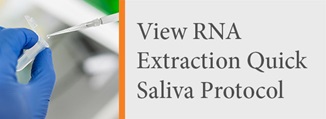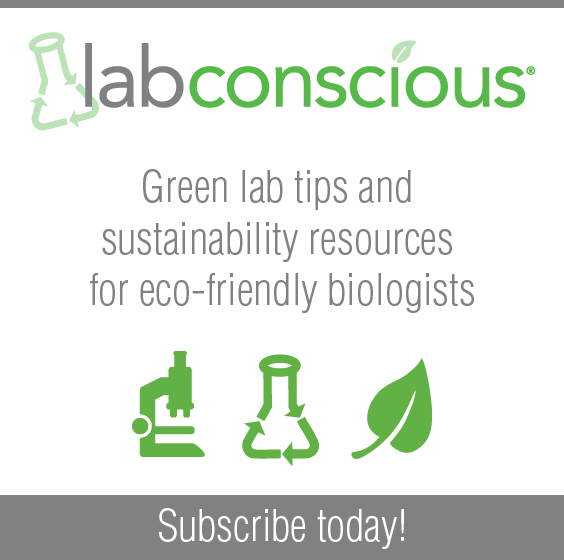
SARS-CoV-2 RT-qPCR workflow research to advance clinical testing
Posted on Monday, October 5, 2020
By
Topic: What is Trending in Science
Creating streamlined workflows for COVID-19 testing remains a key step in solving the public health crisis. What sort of features will help make these tests more accessible and useful for clinicians? Let’s consider that question with a look at the challenges set by the NIH RADx Initiative, the value of qPCR-based SARS-CoV-2 tests, new options from New England Biolabs for saliva samples and plug and play automation, and the recent call for a new testing paradigm.
Raising testing capabilities
Before the pandemic, clinical molecular pathology was a growing field with gains in cancer and infectious disease diagnostics. Today, clinical labs have been called upon to combat the pandemic by providing SARS-CoV-2 testing. Many life science researchers have shifted focus to support clinical labs by developing more efficient testing methods. These test developers are turning to reagent providers for foundational support as they look to offer more efficient methods that are suitable not just for clinical diagnostics but also for screening and surveillance testing.
The NIH Rapid Acceleration of Diagnostics (or RADx Initiative) asks researchers to develop, scale-up, and help to deploy rapid and accurate SARS-CoV-2 tests, especially for vulnerable or underserved populations worldwide. Promoting test accessibility is the goal! By December 2020, the capacity goal for U.S. citizens alone is 6 million per day – a remarkable challenge that will require scientific creativity, flexible methodology and streamlined logistics to accomplish!
The most common molecular methods for SARS-CoV-2 tests rely on RT-qPCR or Loop-Mediated Isothermal Amplification (LAMP). This makes sense since next generation sequencing is an incredible technology, but it is clearly not inexpensive. By contrast, LAMP analysis intrinsically supports accessibility by virtue of its speed and superb utility in limited resource environments. RT-qPCR is popular since it is highly accurate and the necessary instruments are reasonably accessible in clinical lab settings.
It's worth noting that the pandemic was a logistics shock to global systems for molecular testing. Some types of SARS-CoV-2 tests are becoming more widely available, however, tests that required sample purification ran into a series of supply chain challenges, making them difficult to implement at scale. Consistent access to simple, yet essential items like PPE, swabs, pipette tips, and RNA extraction reagents impeded progress. The long turnaround times to run these tests also compounded the work of contact tracing. From the onset, long processing times and supply chain issues exposed bottlenecks in numerous places, including in centralized testing labs. This was especially unfortunate in the case of RT qPCR tests since it is considered the gold standard technique. It's been a harrowing time with complex issues to address at a global scale.
Although worldwide molecular diagnostics infrastructure was not in place to deal with COVID-19 pandemic volumes - there is potential to increase molecular testing output. Lab automation steps can include sample plating, RNA Extraction and RT-qPCR setup. In labs that can afford one of the more leading edge solutions, collaborative robots can be added to act as never tiring robotic technician arms, working constantly to move samples from one instrument to the next. More commonly clinical labs are employing sample pooling to rapidly screen larger numbers of samples. While any of these high-throughput capabilities can have a big effect on lab output, the reality is that unless funds become universally available to standardize high-throughput setups globally, clinical labs must use the equipment already in place. As the gold standard, optimization of RT-qPCR workflows have an essential role to play in the most common contexts.
To wit, the NIH is calling for researchers to improve RT-qPCR test workflows in ways that factor in lab resource flexibility. The expectation is that workflows that incorporate lab resource flexibility will foster resilience system wide. Typical RT-qPCR tests require some type of sample treatment and RNA extraction, an RNA extraction control, human specimen control, and a positive control for SARS-CoV-2. The FDA recommends that test developers conduct validation studies for limit of detection, clinical evaluation, inclusivity and cross reactivity. To target flexibility in practice, researchers are called to validate new qPCR-based workflows with varied instruments, reagents and sample types.
Accelerating research workflows with saliva samples and plug and play automation
New England Biolabs is a unique, scientist led company. We offer a portfolio of reagents for RT-qPCR, loop-mediated isothermal amplification, and next generation sequencing that enable new assays for SARS-CoV-2. Investigators can always speak directly with our scientists via tech support. I was so pleased to learn how these conversations prompted NEB to offer more options for researchers!
New England Biolabs scientists have demonstrated several options for SARS-CoV-2 test developers. They carried out precursor studies for SARS-CoV-2 directly from patient samples with RT-qPCR and Colorimetric RT-LAMP Reagents. They established a protocol for saliva samples using the Monarch Total RNA Miniprep Kit (NEB #T2010) and reduced the total protocol time by 30 minutes by eliminating the Proteinase K step. They were also able to expand the utility of RNA Cleanup Kits by confirming their effective use for viral RNA extraction applications using mock SARS-CoV-2 samples. To help increase the throughput for customers, NEB investigated instrumentation platforms that would be compatible with these kits. Although instrument manufacturers supply their own RNA extraction reagents for use in these machines, many researchers successfully use alternative reagents. Therefore, NEB scientists investigated RNA extraction protocols from saliva with automation on QIAcube® and KingFisher™ Flex instruments. Such replacements are easier when reagents can be used with existing scripts. Considering this, both the Monarch Total RNA Miniprep Kit and Monarch RNA Cleanup Kits were validated for plug-and-play RNA extraction – no custom programming needed.
These protocols work really well, which shows good potential for other platforms. If you would like guidance on adapting these kits for use in your own workflow, please contact NEB tech support!
Containing outbreaks in practice
Development and deployment of faster, accurate and cheaper diagnostic tests is an ongoing challenge. There will be numerous practical considerations as developers roll out testing alternatives. Many big picture questions are already being asked about how to increase public uptake of testing. What types of COVID-19 tests will be the most accessible in diverse global scenarios? Logistically, would home based or point-of-care collections support faster turnaround times? What approaches will work best for preliminary screening? Producing test options that will help identify and contain viral spread for everyone all over the world will require good perspective taking.
Harvard Asst. Prof of Epidemiology Michael Mina has called for a whole new testing paradigm. He has pointed out that five to seven-day turnaround times are too slow to prevent outbreaks. Mina has said that more frequent, less sensitive testing is what is required for community surveillance. He advocates a $1 antigen-based paper strip test that is less sensitive and could allow daily home monitoring that would indicate whether a person has a transmissible amount of virus that day. This is further supported by The New York Times article Your Coronavirus Test Is Positive. Maybe It Shouldn’t Be; a cheaper, faster test can be repeated to catch cases as they develop. Current estimates suggest that up to 50% of disease spread may be linked to asymptomatic individuals, making routine testing a necessity to reduce viral spread. I am interested to see how new qRT-PCR workflows and RT-LAMP could improve accessibility in various settings given their dependable accuracy.
We all need to play a role in making SARS-CoV-2 testing globally accessible, I find it astounding and inspiring to consider that we may be living in a molecular diagnostics renaissance!
NEB will not rent, sell or otherwise transfer your data to a third party for monetary consideration. See our Privacy Policy for details. View our Community Guidelines.
Products and content are covered by one or more patents, trademarks and/or copyrights owned or controlled by New England Biolabs, Inc (NEB). The use of trademark symbols does not necessarily indicate that the name is trademarked in the country where it is being read; it indicates where the content was originally developed. See www.neb.com/trademarks. The use of these products may require you to obtain additional third-party intellectual property rights for certain applications. For more information, please email busdev@neb.com.
Don’t miss out on our latest NEBinspired blog releases!
- Sign up to receive our e-newsletter
- Download your favorite feed reader and subscribe to our RSS feed
Be a part of NEBinspired! Submit your idea to have it featured in our blog.




